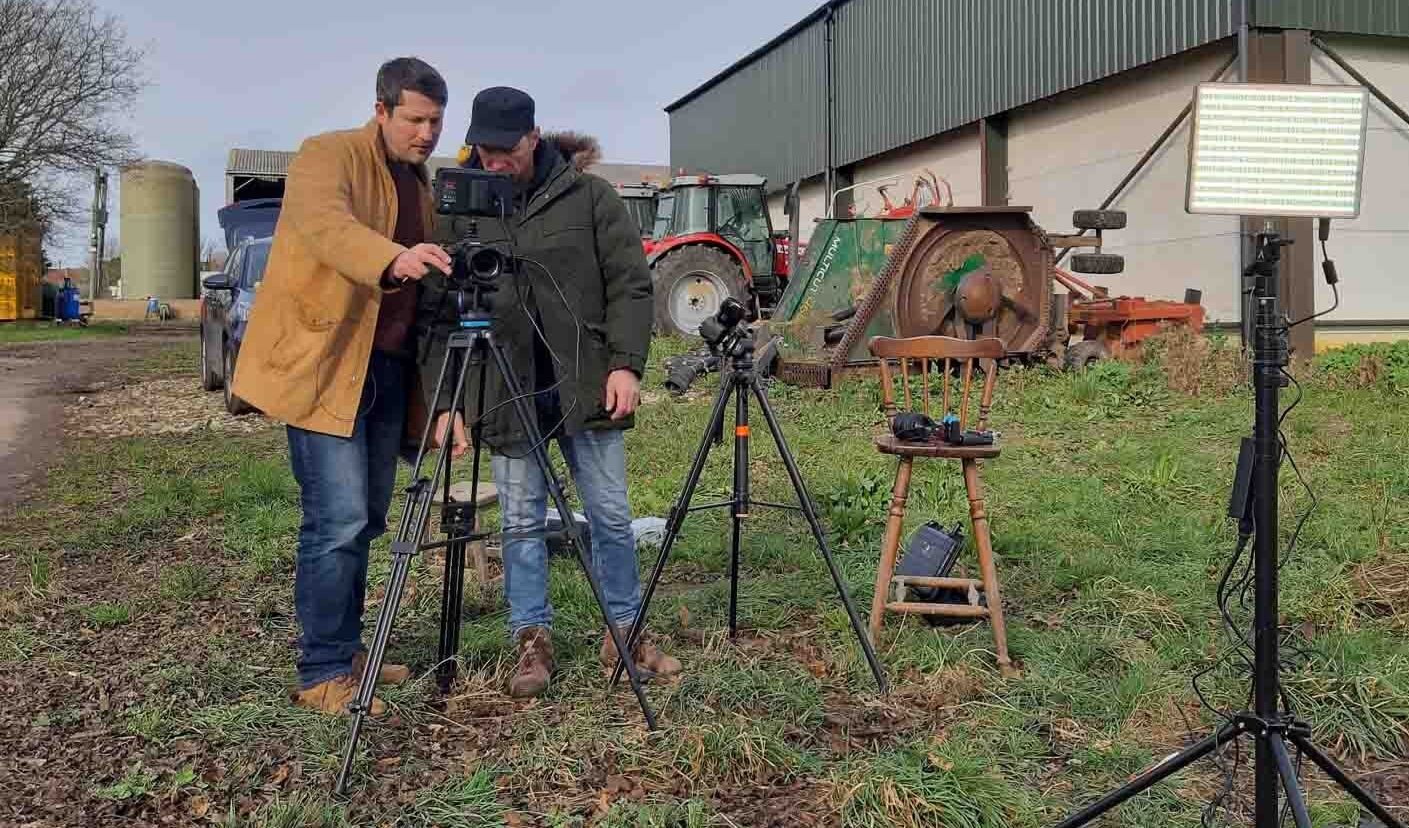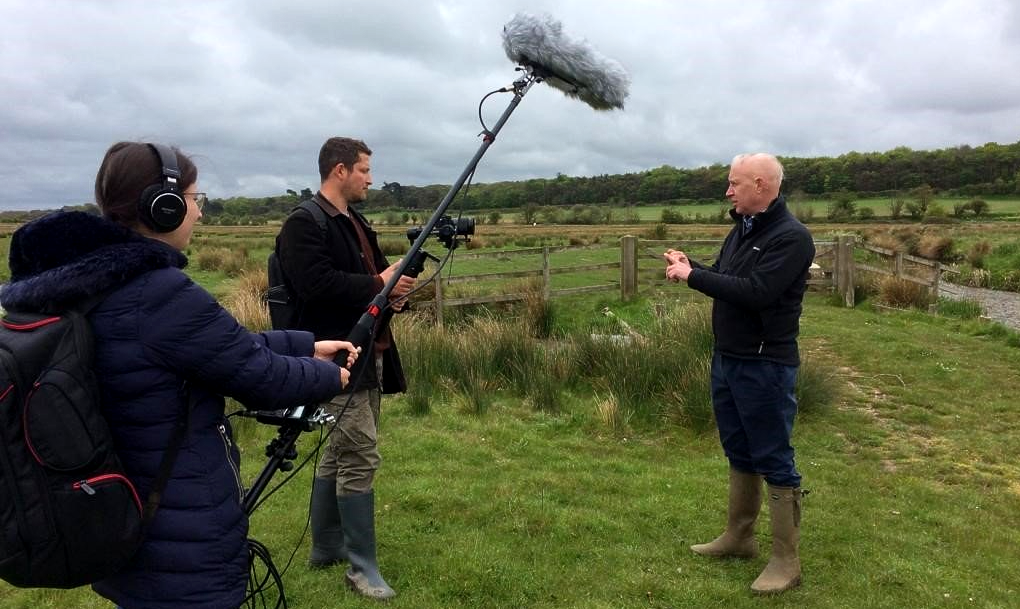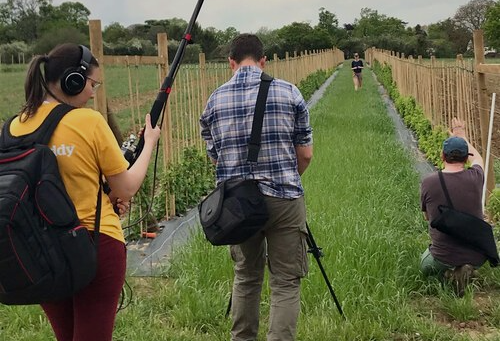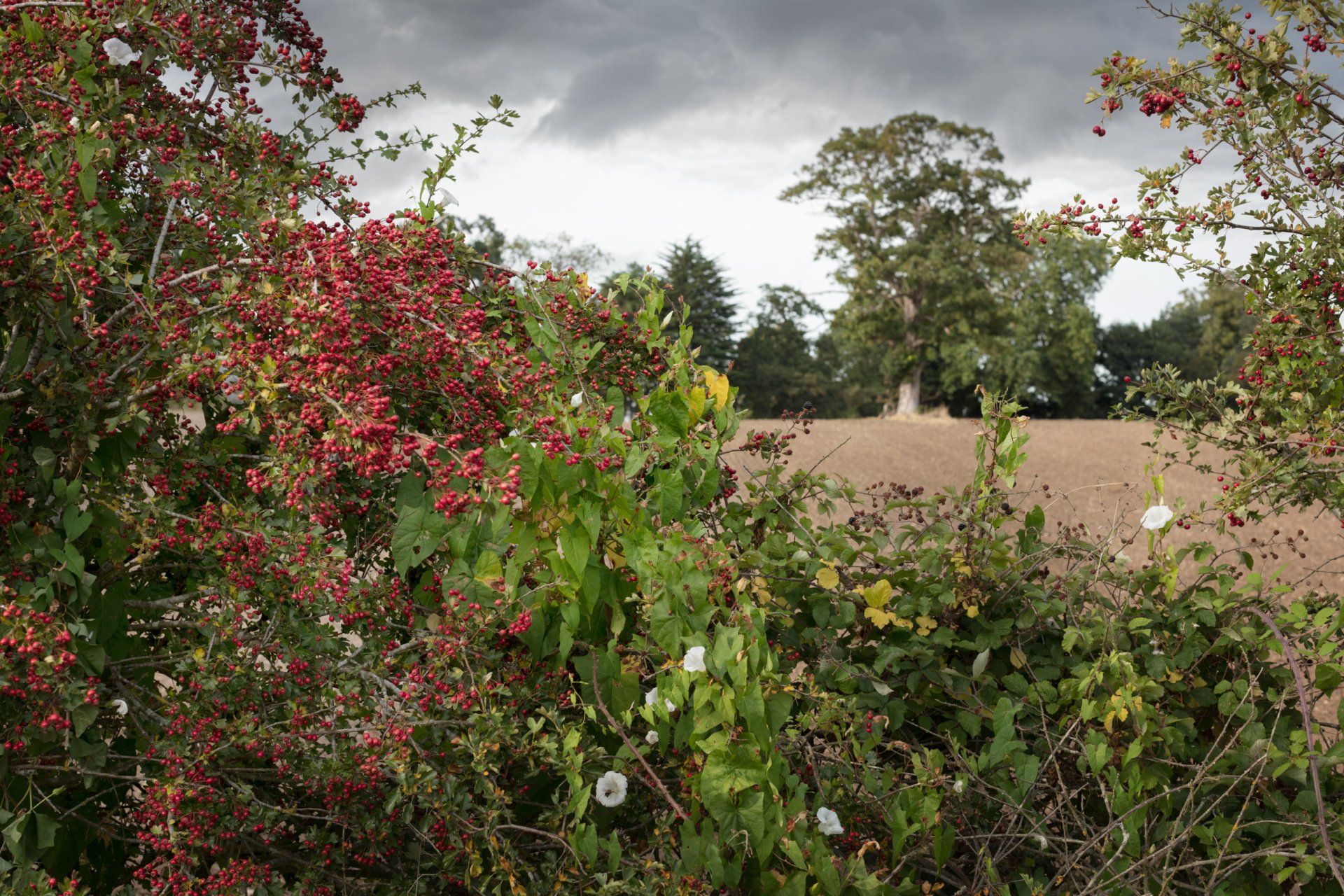Regenerative Agriculture - Six Inches of Soil
British farming is undergoing a quiet, nature-friendly, revolution.
That's according to the makers of a new documentary highlighting the benefits of a regenerative approach to growing food.
Kate Ford is from Six Inches of Soil, a feature-length film which focuses on this rapidly growing movement.

Food production in Britain is controlled by a handful of supermarket retailers and food processing companies. As a society we’ve become totally disconnected from the way in which our food is produced, packaged and transported. Many of us seem happy with the ‘choice’, ‘convenience’ and ‘good value’ that supermarkets seem to offer. We’re also addicted to junk food, which is contributing to an unfolding public health crisis. The queues at our food banks grow ever longer.
We believe meaningful change will come from the soil. This will be pioneered by a quiet but rapidly growing food and farming movement in the UK, which seeks to completely overturn the way we have farmed and eaten over the last 70 years. This movement is the inspiration behind the new campaigning documentary feature film, Six Inches of Soil, which tells the story of remarkable farmers, communities, small businesses, chefs and entrepreneurs who are leading the way to transform how our food is produced and consumed.
The film, which is currently in production and planned to be released in summer/autumn 2023, centres on new entrant farmers, as well as established farming pioneers who are leaving behind conventional agriculture to build a future that focuses on the health of the soil and increases biodiversity. It will follow their often-challenging journeys and will examine the whole ecosystem of food and farming including how they access land and create robust business models.
With a compelling narrative, engaging animations and interviews with leading figures, Six Inches of Soil will offer a provocative ‘focusing moment’ for wider public debate. This will give farmers confidence to adopt nature-friendly practices and consumers the impetus to rethink food choices. We aim to create a groundswell of opinion resulting in policy change, which we hope will fund a British agroecological transition.
Following the film’s release, the production team will launch an Impact Campaign that will aim to debunk the myth of food scarcity and outline how the global population can still have affordable, nutritious food while being genuinely sustainable. We want the film to challenge the major supermarkets, agrochemicals and biotech industries, and corporate food lobbyists, to respond to this alternative vision for agriculture.
Anna Jackson and Adrienne Gordon, the film’s new entrants, will meet with both conventional and regenerative farmers across the country, including Stephen Briggs, agroforestry expert and first-generation farmer who’s been farming organically for 18 years at his 576-acre farm in Cambridgeshire and Jake Fiennes, Head of Conservation, Holkham Estate, Norfolk.

Fiennes explains, “As I drive through East Anglia, I see more and more farmers looking at the opportunities to future proof their farms for the next generation. Everyone does it slightly differently, there's no one size fits all solution. The conflict in Ukraine will accelerate this. It will force us to be more imaginative with how we crop and how we produce commodities so that it’s more environmentally sustainable and more economically efficient. There are many farmers out there that are understanding the benefits of multispecies short term cover crops that can make their soils more resilient to climate change, more efficient and improve nutrient capture so there's less reliance on artificial fertilisers.”
The Six Inches of Soil team has been meeting with and talking to many people across the farming community over the past year, and has found that much of the desire to shift from traditional to regenerative agricultural practices is coming from the younger generations. Fiennes agrees, “We’ve got a system that is just about to have a generational change. Those that lead the charge of change, the innovators and the early adopters, are the ones that learn from mistakes and benefit from successes. That's an organic growth of knowledge exchange.”

“I see local farmers direct drilling and I’m seeing whole farm systems that are less detrimental on natural capital - soil, water and air. I’m seeing farmers talking about food security and farmers ensuring that they're making space for nature.”
As well the many environmental benefits that regenerative agriculture delivers, farmers are also having to think seriously about shifting to more nature friendly methods because of the huge rise in fertiliser prices. Fiennes says, “Most cereal growers would have purchased their fertiliser in June 2021 and at that point it was trading at about £260 per tonne, now in spring 2022 because of the huge surge in gas prices fertiliser is sitting at a four-figure sum.
An alternative is herb rich leys, which are more resilient and less reliant on artificial inputs. We can look at short to medium term grass leys within our arable systems that can feed our livestock and make our soils more resilient. ”He concludes, “We need to be economically sustainable and environmentally beneficial in our food production systems and regenerative agriculture gives us a route or an avenue to assess how we can further improve our farm businesses.”
After a year of pre-production research, visiting farms, talking to agroecology experts and inspirational organisations throughout the UK, as well as creating partnerships with industry organisations and the successful completion of a first round of Crowdfunding, filming for Six Inches of Soil is underway. Claire Mackenzie, the film’s producer says, “I want more people to hear from the farmers that I’ve met over the last year, many of whom are happier in their work because of their reconnection with the soil and their land and the formation of strong and close communities of like-minded people who are all supporting each other on this intrepid journey.”
The Six Inches of Soil team has formed partnerships with the major UK charitable organisations and interest groups working on agroecology who plan to use the film as a campaigning tool, with screenings up and down the country and accompanying campaigning materials. Partners include: The Soil Association, Farm-Ed, Sustain, Groundswell, Sustainable Soils Alliance, Nature Friendly Farming Network, Organic Farmers and Growers Association, the Pasture for Life Association and BASE UK. The team also recently announced a Corporate Partnership with David Gordon, Founder of sustainable clothing brand, BAM Clothing.

WildEast Blog

Powered by LocaliQ
Follow Us
SIGN UP FOR NEWS & UPDATES
Newsletter Sign Up
Thank you for signing up to our newsletter.
Please try again later.
Privacy / Terms & Conditions / Sitemap
